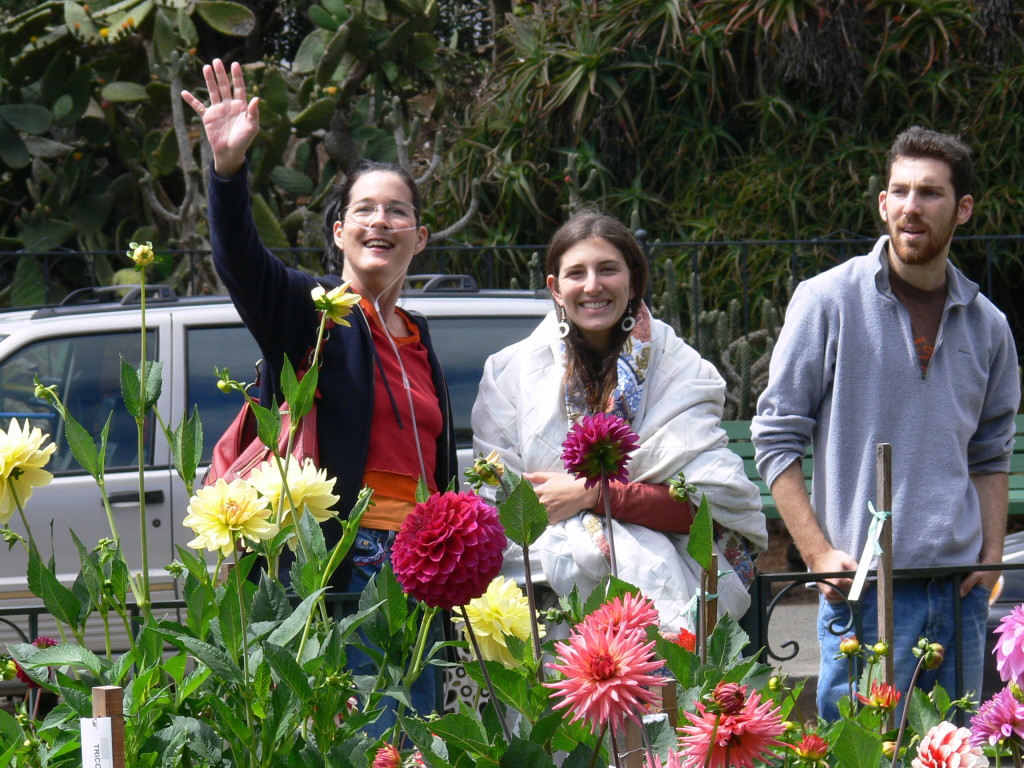|
|
December 16, 2015
 You got that right, Sir Winston A new baby is a gift. As parents, we’re so over-the-moon in love with our little bundle, all we want is to make him or her happy. So, from the very start, parents pepper kids with questions that begin with:
“Do you want _______?”
Little ones can’t talk yet, so we fill in the blank:
Do you want more?
Do you to play with this?
Do you want mint chip or jamoca almond fudge?
Their every wish becomes our command. That’s why they quickly learn to say “I want _______.” Being a little kid is such sweet gig.
Then one day a parent says ‘NO’ and the 2-year old brain explodes: “What did you say?! What do you mean it’s too close to dinner? What do you mean it costs too much and you won’t buy it for me? This is outrageous!!” Kids don’t have all those words, so they reiterate the obvious for stupid Mommy/Daddy: “BUT I WANT IT!!!!!”
Tantrums don’t always work, but they work often enough to keep hope and self-centeredness alive.
As kids become more aware of the power dynamics within the family, they test boundaries. That’s when a parent’s “Do you want ______?” can take on a sinister ring:
Do you want me to take that away from you?
Do you want a time out?
Do you want me to give you something to cry about?
This last rhetorical question was surprisingly popular amongst parents during the second half of the last century. Hopefully it’s gone the way of the landline, but I’ve got no empirical data either way.
Soon kids realize how important their happiness is to Mom and Dad and because they want to make it easier for us to please them they learn to be very specific about what they want and why they need it… NOW:
“I want __________. (pause) I am too old enough!”
“I want __________. (pause) ‘Cause I’m the only one who doesn’t have one!”
“I want you to give me what I want and I want you to leave me alone.” (Double demand… impressive language development!)
For those of us in comfortable circumstances (yes, I’m talking about you on the laptop) it stands to reason our kids may need an attitude transplant to get from “I want to get _____.” to: “I want to give ______.” But we can do it! Technology connects us with organizations doing good work. We have the credit cards (which makes donating less painful). Click. Click.
Now is an excellent time to look around and see where you could spread a little holiday cheer and some green. Oxfam America, International Rescue Committee, Southern Poverty Law Center (Teaching Tolerance), Doctors Without Borders, UNICEF and Kiva are some of my personal favorites. And there are at least a million other absolutely inspirational organizations that are effectively working on solutions to local, national and international challenges. Giving to any of them makes YOU (and any entitled kid you want to inspire) part of the solution. Find out who’s doing what and support their efforts. Start your search here.
Warning: Giving can become habit-forming, but in a healthy way. And think about it, do your kids really need more stuff or might your family be in the market for some good karma points?

November 17, 2015
Terrorism. Roast turkey with stuffing. Refugees. Sweet potatoes with marshmallows. Fear. Trust. Violence. Kindness. We need Thanksgiving more than ever. But who gets the invite and who doesn’t?
 Hello, dear friend. You are welcome. A few years back, my dear friend Bettina was having health issues and emailed: “I know this is incredibly presumptuous and Miss Manners would be scandalized, but I’m wrangling for an invitation for Thanksgiving.” (Yes, she actually wrote that.)
I couldn’t believe she assumed she’d crossed the line by saying, “I’m not feeling well and I don’t want to be alone. Can I come over?” I called immediately and gave her top marks for asking for what she needed. She was relieved knowing she’d done the right thing by speaking up.
Most of us are quicker to stand up for others than for ourselves. On some level we must believe it’s a sign of weakness to ask for support. But where does that foolishness come from? Not long ago I asked a bunch of 6th-8th graders to rate themselves on two statements: “It’s easy for me to ask for help” and “I lie and pretend things are OK when they aren’t.” The results? Twenty-five percent of the kids said it was “never or almost never” easy to ask for help. Another 25 percent reported that “sometimes” they had trouble asking for help. Another sad finding: A whopping 83 percent admitted that “sometimes, always, or almost always” they fudge the truth and pretend things are OK when they aren’t.
An inability to ask for help, coupled with a habit of pretending things are fine when they’re not, is unhealthy. When we deny our human need to connect heart-to-heart we short-change ourselves and the people who love us.
Teaching kids to be good people includes helping them get comfortable asking for support. Sure, self-reliance is essential, so is resilience and learning to calm yourself when stressed. But inner resources aside, we all feel vulnerable at times. We are also interdependent. When we let people know how we feel and allow them to love us and help us, we honor our humanity. We do the same when we welcome others to our table, our classroom, our community.
When Bettina reached out to me, I was filled with love for her. I wanted to help, but our family was heading out of town for Thanksgiving. With my encouragement she confidently expressed her needs to another friend who gladly opened his heart and home. What would surely have been a sad and lonely day for her turned into a wonderful experience of friendship and a sense of belonging.
Less than two years later Bettina died. I’m comforted knowing she wasn’t alone that Thanksgiving. I admired her courage in reaching out and asking for what she needed. She taught me a powerful lesson: When it comes to friends and family, hold nothing back. Allow yourself to love and be loved fully, without limits.
Happy Holidays, from our family to yours.
 Peace

October 22, 2015
 I’m a bad ass. Just for tonight. Around here we’re experiencing a black and orange explosion. Each year the Halloween house make-overs get more impressive.
We’ve still got nine days to go, so I thought I’d get ahead of the curve and write about Halloween’s teachable moments for kids. Non-spoiler alert: This is not a parent tip sheet on how to put reasonable restrictions on kids’ sugar consumption. (That’s not a bad idea, but I leave it to the nutritionists.) Instead, let’s talk about the “mask” kids put on for Halloween vs. the mask many of our tweens and teens wear every single day. Halloween is a time to pretend to be someone else. It can be great fun and I’m a huge fan. But what happens when your child wears a mask all the time, hiding who he or she really is because of fear of disapproval from peers or even from you?
I’ve been thinking about the fine art of faking it for a long time because I work with tweens and teens and, face it, they can be masters of deception. When I talk to kids about consciously putting on a “mask,” as we do when we get up on stage to perform in a play or dress up to explore other identities, it fits right into the idea of figuring out who you are, which is the manifesto of adolescence. But when we get so attached to hiding behind the mask that we’re no longer conscious of wearing it then we are faking it without knowing it. That’s never a good place to be, especially at a time when our tweens and teens ought to be exploring what it means to be one’s authentic self.
I have asked kids: How do you know when you’re faking it? They’ve provided profound responses, like these:
I get a sinking feeling in my stomach.
I feel like what I’m doing is not really me, but I continue doing it anyway.
I feel like a fraud in my own body.
I feel like a jumble of very confused spaghetti.
We ought to encourage our kids to reflect deeply on who they are and who they are becoming. They need to think clearly, despite the cacophony of judgments and opinions happening around them and within them. The best way I know to do that is by telling them how much we appreciate who they are when they are being authentic. We need to also model authenticity in own our lives. That doesn’t mean that we are always a certain way. Our behavior and attitudes change depending on circumstance and setting, and that’s appropriate. But when it’s “just us,” in the family, we need to create opportunities to talk about what it means to be true to oneself and to have integrity. No faking it.

December 24, 2014
 Some things you never forget My mother, Martha Scolnick Larris, died on Christmas Eve. Tonight I’ll light the yahrzeit lamp to mark the anniversary of her passing. The same lamp she used to honor her parents’ memory. I guess some day my children will light it for me. Lovely Jewish tradition.
1994. It’s been twenty years. My relationship with my mother was often contentious and frustrating and hurtful. As much for her as it was for me, I’m sure. Takes two to tango. But we also had fun together. And there was much about her that I loved and admired including her love of books, her impressive vocabulary and quick wit, her instant rapport with every child she encountered, her self-reliance and her sense of fairness. She was a whiz at canasta and bridge and absolutely unbeatable in Scrabble. Also, my mom had a dynamite smile which you can see in this photo at the right.
I think of her often while I’m in the kitchen. I still have her coffee pot and her ice cream scoop. I still make her meatloaf, her sweet potato and marshmallow casserole, her banana chocolate chip cake. But it’s in the garden, when I marvel at my gladiolus or smell the lilacs that she comes to me most. The fact that I have a garden which gives me so much pleasure is a direct result of being my mom’s daughter. Let me tell you, that woman knew her flowers. And because of her, so do I. And so does my daughter.
 This iris grows in my garden because my mom had them in hers. Maybe it seems a small thing to know a freesia from a forsythia, a hydrangea from a hyacinth. And who really cares if those iris bulbs I got from my neighbor seem bluer this year than ever? I care. I can’t help it. This special awareness of plants provides me… no compels me to pay attention and celebrate color, light, form and fragrance. If I saw them all as “just flowers” I’d be missing most of the show and I certainly wouldn’t be taking photos of them every chance I get. Appreciating beauty at that level ain’t small potatoes. So thank you, Mom.
I know all moms are not always a positive influence on their children. People, including our parents, come into our lives for a reason. But even in a less than wonderful childhood there are positive lessons. Take a moment and think about those lessons. They are gifts you’ve received. Now think about the legacy you’re giving to your children. Hopeful it’s a life-affirming one.
Your comments, as always, are welcome.

| |
















